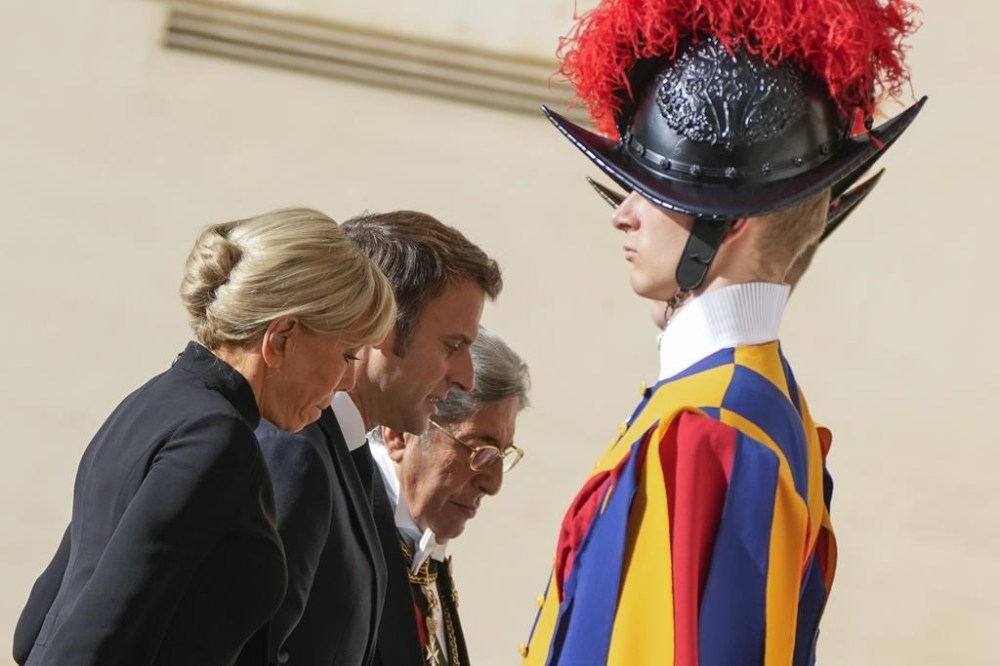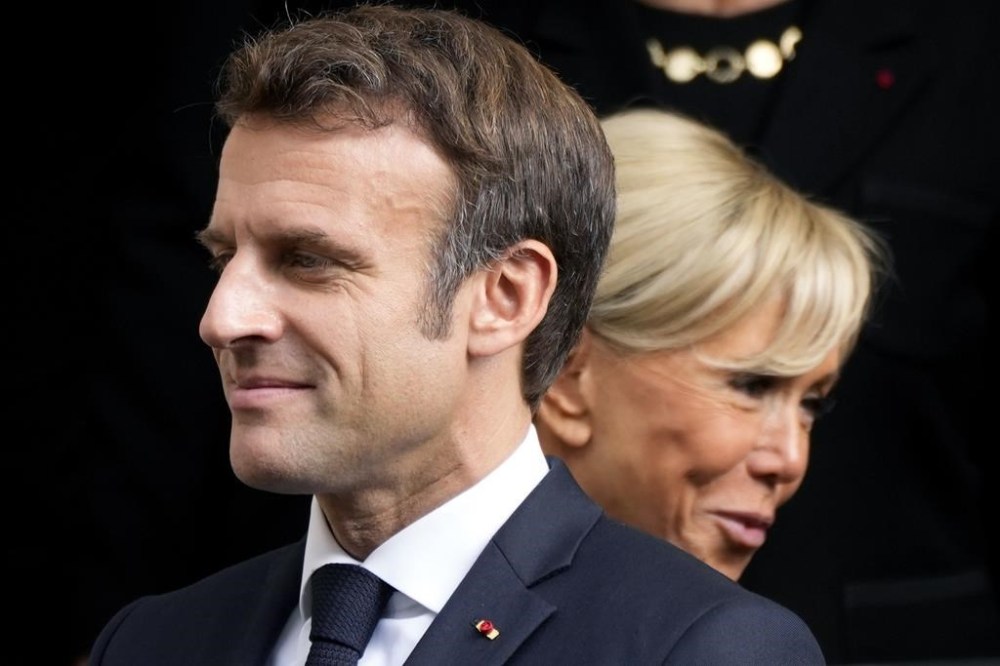Pope, Macron meet at Vatican; Ukraine concerns loom large
Advertisement
Read this article for free:
or
Already have an account? Log in here »
To continue reading, please subscribe:
Monthly Digital Subscription
$0 for the first 4 weeks*
- Enjoy unlimited reading on winnipegfreepress.com
- Read the E-Edition, our digital replica newspaper
- Access News Break, our award-winning app
- Play interactive puzzles
*No charge for 4 weeks then price increases to the regular rate of $19.00 plus GST every four weeks. Offer available to new and qualified returning subscribers only. Cancel any time.
Monthly Digital Subscription
$4.75/week*
- Enjoy unlimited reading on winnipegfreepress.com
- Read the E-Edition, our digital replica newspaper
- Access News Break, our award-winning app
- Play interactive puzzles
*Billed as $19 plus GST every four weeks. Cancel any time.
To continue reading, please subscribe:
Add Free Press access to your Brandon Sun subscription for only an additional
$1 for the first 4 weeks*
*Your next subscription payment will increase by $1.00 and you will be charged $16.99 plus GST for four weeks. After four weeks, your payment will increase to $23.99 plus GST every four weeks.
Read unlimited articles for free today:
or
Already have an account? Log in here »
Hey there, time traveller!
This article was published 24/10/2022 (1131 days ago), so information in it may no longer be current.
ROME (AP) — Pope Francis on Monday met at the Vatican with French President Emmanuel Macron, with the war in Ukraine looming large in both leaders’ concerns.
The nearly hour-long private audience was Francis’ third with Macron since becoming pontiff.
In a sign of their good relationship, the two used the informal French form of “you” in their conversation, according to the president’s office.

The Vatican in a brief statement said that after Macron spoke with Francis, the French leader met with the Holy See’s secretary of state and its foreign minister.
“During the cordial discussions, which took place in the Secretariat of State, the parties focused on matters of an international nature, starting from the conflict in Ukraine, with special attention to the humanitarian situation,” the Vatican said. “Particular consideration was given to the region of the Caucasus, the Middle East, and Africa.”
A French presidency official indicated the focus on Ukraine was in line with Macron’s speech on Sunday evening to a peace-promoting forum, which Francis will address later this week. Macron used that speech to argue that it’s up to Ukraine to decide the moment and terms of peace to end the war.
In his talks with the pontiff, Macron underlined that besides efforts by nations, there is a need for a religious dialogue. He encouraged the Catholic Church to play a role in helping Ukrainian and Russian peoples to talk to each other.
On Sunday, Macron decried that Russia was manipulating the Russian Orthodox church. He didn’t elaborate, but the Russian Orthodox patriarch, Kirill, is a fierce supporter of the Russian war against Ukraine.
Francis will go to the Colosseum on Tuesday to deliver a speech about peace, at the same forum where Macron spoke. The three-day forum is organized by a Catholic charity close to the Vatican.
The pontiff frequently invokes the suffering of the Ukrainian people in his public comments about the war and has repeatedly pressed for talks to further the cause of peace. He also has voiced a strong desire to go to Ukraine, but logistical concerns so far have thwarted that ambition.

Earlier this year, Macron, along with Italy’s then premier and Germany’s chancellor, traveled aboard a train together to Ukraine’s capital, Kyiv, to meet with Ukrainian President Volodymyr Zelenskyy. Macron is one of the few Western leaders who has also spoken with Russian President Vladimir Putin multiple times, including on several occasions early in the war.
Accompanying Macron to the Vatican was his wife, Brigitte.
___
Sylvie Corbet contributed from Paris.
The Free Press acknowledges the financial support it receives from members of the city’s faith community, which makes our coverage of religion possible.



